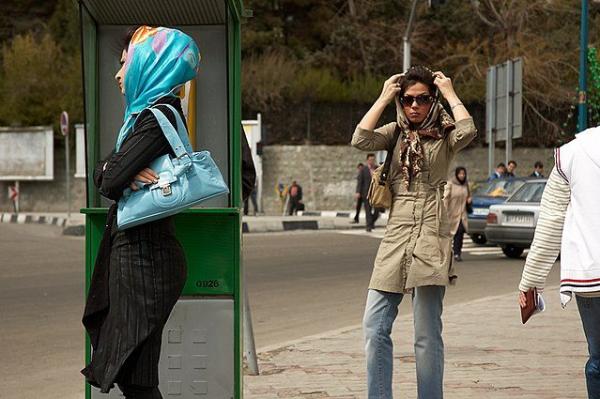
A group of Iranian women are being hailed as heroes for removing their hijabs in an apparent protest against the country’s mandatory Islamic dress. But this is more than push back against a piece of cloth. Consider the history of the hijab in Iran:
The hijab (headscarf) was initially banned in 1936 by the founder of the Pahlavi dynasty, Reza Shah, as a measure that effectively put women who wished to observe the hijab under house arrest because they did not want to go in public uncovered. Then, an equally irrational decree made the hijab compulsory when the leader of the Islamic Republic, Ayatollah Khomeini, took over in 1979.
Over the years, protests to overturn the edict were unsuccessful, and enforcement took the form of committees that roamed the streets to track offenders.
In light of the historical precedence that has used women’s bodies for these proxy battles between competing forms of authoritarianism, this latest demonstration of female empowerment should not be viewed as merely a push back against a singular law. These protests should be viewed as part of a universal objection against the crimes of patriarchy and of the antiquated local customs that have blemished our scriptural interpretations.
It’s a protest against state power.
Muslim women can no longer be intimidated by the assertion that they are giving ammunition to the Islamophobic right wing with their demands for justice. In the struggle against a right wing eager to demonize Muslim cultures as inherently misogynistic and fighting for human rights, more and more women are choosing justice over every jurist’s pronouncements.
Iranian authorities are responding to this recent campaign with the predictability we have come to expect from authoritarian “protectors,”- by invoking the conspiracy defense.
This campaign against compulsory hijab they claim, is being instigated by outside influences and not inner conviction.
But, Iranian women are quite fed up by these absurd deflections. When it comes to matters of personal choice, the message is clear: No one should be allowed to use legalized force to enforce abstract principles regarding modesty or any other thing for that matter. Faith born out of force is devoid of conviction.
In free societies, we have a right to our vices, but in totalitarian ones, women do not even have a right to their virtues. Women are not recognized as cognitively diverse individuals. Instead, they are treated like a public commodity to be enshrined with a specific social value.
Twenty-nine women have been jailed for refusing to cover their hair. Twenty-nine women were jailed because they refused to cooperate with their persecutors. Twenty-nine women were jailed because they would not allow injustice to disguise itself with the trappings of civilized protocols.

They were jailed because they would not grant injustice the pretense of respectability or order by allowing themselves to be removed through civilized negotiations.
Instead, they have chosen to reduce their persecutors to the shameless spectacle of enforcing ridiculous demands on them under the guise of upholding the law.
Omid Memarian, an Iranian journalist, tweeted, “A growing number of women are removing their mandatory head scarves and waving them on the streets of Tehran: a courageous symbol of civil protest against the hijab; forced on women in Iran for decades. Six women so far and it seems they’re just starting!”
But, also important to note — not all women joining the protests are taking off the hijab. Many are wearing it and joining the protest in support of the right to choose. Because at the heart of this revolution for human dignity is the assertion that we women should have agency over our bodies and not the state.
And when the law does not provide us recourse, our only recourse is to break it. Once something falls outside the realm of choice, it has fallen outside the realm of morality. And the attempt to reach heroic ends without any means, will mean– by any means necessary.
Inas Younis is a Kansas City-based freelance writer and commentator. Her opinion pieces and personal essays have been published in various websites and magazines. Inas is an active volunteer in several interfaith initiatives and serves on the board of the Sisterhood of Salaam Shalom. She is also a contributor to a forthcoming 400-page community-led guide, aimed at mobilizing Muslims to take a stand against violent extremism and develop narratives of peace. Her work was featured in an anthology titled “Living Islam Out Loud.” Her column, “The Muslim Monad,” appears in Altmuslim during the first week of every month (Though it is late this month.)












